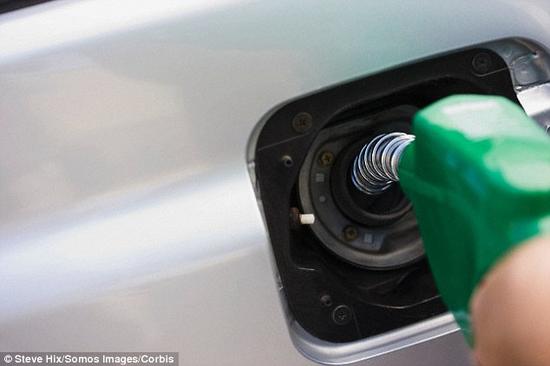According to foreign media, American scientists said they have found a way to use discarded corn husks and straw to make cheap hydrogen fuel that does not pollute the environment like fossil fuels. According to a report from AFP on April 6, a report published in the monthly "Journal of the National Academy of Sciences" states that the research team of the Virginia Institute of Technology saves time and money, and the zero-emission fuel produced can accelerate the development of hydrogen-powered vehicles. Zhang Yiheng, a professor of biological system engineering at the Virginia Polytechnic Institute and one of the authors of the study, said: “We have shown that the most important step towards the hydrogen economy is to use local biomass resources to produce cheap, green hydrogen.†The person in charge was Joe Rolling, Ph.D., a former Ph.D. student at Virginia Polytechnic Institute, Zhang Yiheng. They both co-founded a cell-free bioinnovation company. According to the report, the study drew on previous research using xylose. Xylose is the most abundant plant monosaccharide. Other hydrogen fuel production methods rely on deep-processed sugar, but Virginia Tech's research team uses corn husks and straw called dirty biomass to reduce costs and make the fuel easier to produce locally. Rollin discovered that the decomposition of corn stalks and straw into hydrogen and carbon dioxide can use both glucose and xylose instead of using them separately. This discovery means that the release rate of hydrogen can be accelerated, and at the same time, the plant area needed to produce hydrogen can be reduced to the size of a gas station. Rolling pointed out: "We think this exciting technology is expected to make hydrogen fuel vehicles universal and replace fossil fuels throughout the world." According to a report on the UK’s “Isle of Independents†website dated April 6, scientists have significantly increased the efficiency of using plant wastes to produce clean hydrogen fuel. This breakthrough will one day lead to the “bioreactor†where gas stations are supplemented by roadside vehicles. The network replaced. A study funded by Shell Petroleum Co. shows that it is possible to convert all sugars stored in corn waste, including corn stalks and loquat leaves left after harvesting in corn fields, into hydrogen without increasing emissions to the atmosphere. The total amount of carbon dioxide. Zhang Yiheng, a professor at Virginia Polytechnic Institute, said that the researchers optimized the extraction process by mixing raw agricultural waste with an aqueous solution containing 10 enzymes. This solution converts the xylose and glucose contained in the plant into hydrogen and carbon dioxide. Previous processes used fermenting microorganisms or industrial catalysts and could only convert 30% to 60% of sugars in plants into hydrogen. However, Zhang Yiheng said that the latest technology converts 100% of plant sugar into hydrogen. He said: “The products taken out by this process are all gases, so they can be easily separated from the biomass matrix and collected. Throughout the process, the carbon value of this process is constant, and we make the reaction rate It has increased 16 times, making it economically viable."
A hydraulic fastening tool is a type of power tool that uses hydraulic pressure to quickly and efficiently fasten or loosen nuts, bolts, and other fasteners. It is commonly used in industries such as construction, automotive, and manufacturing. Hydraulic Fastening Tool,Hydraulic Spare Part,Hydraulic Bolt Tensioner,Hydraulic Bolt Tensioner Tool Yantai Dongyue Hydraulic Technology Co., Ltd , https://www.deeleap.com

The tool consists of a Hydraulic Pump that generates pressure, a Hydraulic Hose or line to transmit the pressure, and a hydraulic cylinder or motor that applies the pressure to the fastener. The tool may also have various attachments or sockets to fit different sizes and types of fasteners.
Hydraulic fastening tools are known for their high torque output, allowing them to handle heavy-duty fastening applications. They are often used in situations where manual or electric tools are not sufficient, such as when dealing with rusted or stubborn fasteners.
Some advantages of hydraulic fastening tools include:
1. Speed and efficiency: Hydraulic tools can quickly apply high torque, reducing the time and effort required for fastening or loosening tasks.
2. High torque output: Hydraulic tools have a high torque output, making them suitable for heavy-duty applications that require a lot of force.
3. Versatility: Hydraulic fastening tools can be used with various attachments and sockets, allowing them to handle different sizes and types of fasteners.
4. Portability: Many hydraulic fastening tools are compact and lightweight, making them easy to transport and use in different locations.
5. Durability: Hydraulic tools are typically built to withstand heavy use and harsh working conditions, ensuring long-lasting performance.
Overall, hydraulic fastening tools are a reliable and efficient option for professionals who need to quickly and securely fasten or loosen nuts, bolts, and other fasteners.